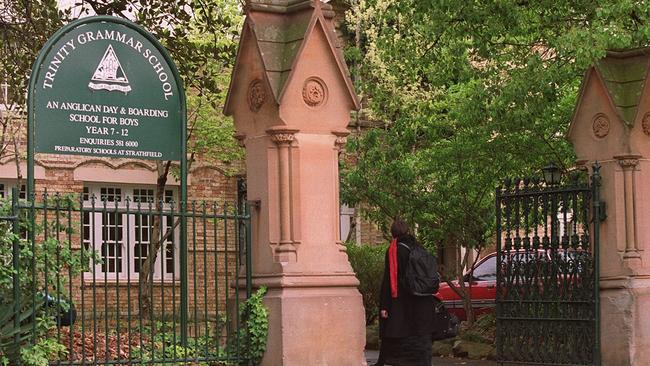Private schools stumble in the Covid aftermath

Including independent Catholic schools, almost 1150 of the 9500 schools in Australia are in the independent sector. Last year, they enrolled 16 per cent of the national student population, about 632,000 students. These schools matter. Independent schools are more vulnerable to disruption and shocks because they rely heavily, but not exclusively, on private resources to buttress the bulk of their operations.
The impacts in the independent sector have been real, painful and will certainly be long-lasting. As the vast majority of schools limp to the end of the year, it remains a distinct possibility that some private schools will not recover fast enough to continue operations once the full impacts of the pandemic become clearer next year.
Many independent schools, especially those with facilities that cater to high numbers of boarders, are finding the going tough and have been stunned by the shake-out COVID has caused. The old model of boarders, mostly coming from rural and regional areas of Australia, disappeared long before the pandemic. As with the university sector, many independent schools in recent years have adjusted their balance sheets to accommodate repeat patronage from international students, mostly from north and Southeast Asia. This trend gathered pace in the decade before COVID and the numbers of students involved is significant.
Large numbers of offshore students expected as boarders this year never appeared and it seems certain dormitories will be empty again next year. Boarding school fees run from $40,000 to $70,000: the loss of revenue has cut deep.
The threats to enrolment lie on and offshore. As family incomes have come under huge pressure, expensive education options may be jettisoned in favour of more immediate concerns. Adding to pressure on private schools has been the need to produce online learning at a level unimagined a year ago. Core and co-curricular learning (sport, music, public speaking and so on) have all been thrust into a different paradigm, creating threats and opportunities for schools able to adapt.
From the way students, staff and paying parents are communicated with, to the conduct of examinations, almost every aspect of operation has undergone an overhaul. A return to the old ways is not an option.
If students are feeling anxious and unsettled, so are their principals and governing councils. The older, more traditional schools with ageing, often church-dominated governing councils, are not used to rapid change. It is anathema to them. These schools thrive on repetition, constancy and rigidity. They excel at celebrating tradition, sameness and meeting the high expectations of students and their parents. Some families are in the fourth or fifth generation at “their” school and these people prefer convention to change. The foundations of some schools have been shaken and it’s fair to ask whether their leadership teams are up to the challenges coming their way.
A big question remains for school councils: is your school sufficiently agile, adaptable and innovative to see through this crisis or is your school stuck in an operating model more suited to the 20th or even 19th century?
If the answer leans towards the latter, know that the clock is ticking and adaptation may be the only way ahead.
The quality of school councillors, principals and deputies will matter as never before. Optics will matter less, and skills, training, hard work, dedication and focus will come to the fore.
As we have seen in high-profile examples, some school councils (Trinity Grammar, St Kevin’s College and the plethora of schools involved in child sexual abuse) have shown either an astonishing capacity to not know what is evidently occurring in their own schools or a level of indifference to governance that reflects the wrong people being selected for duty.
The trend towards celebrity for the chair or membership of school councils is deeply regrettable. What all schools need are people committed to education — nothing more and nothing less.
The years ahead will require people committed to operating in a disrupted, uncertain environment where new ideas and opportunities must be seized and traditions assessed as to their ongoing relevance. Slavishly adhering to the way things were done in years past is no longer an option. Failure to adapt can have only one conclusion.
John Simpson is a member of council at Monash University.


Private schools in Australia thrive on certainty but, for many such institutions, COVID-19 has created a new normal that is shaking the foundations on which they have been built. This could mean the closure of more than a handful of schools unless they rapidly adapt. While also true for universities and state high schools, those institutions have governments behind them to help them weather the storm.